
We will all face the day when we must assume the role of caregiver for our parents. Here are some steps you can take to manage the process effectively and to provide the best care for those who cared for you, even if circumstances require you to do it from a distance.
1) Plan In Advance. Do as much advance planning as possible while your parents are still physically and mentally capable of making decisions in their best interest. Start by scheduling a formal meeting with your parents and include your siblings. Take this time to discuss health care, legal matters, (including living will, powers of attorney, trusts, and wills), money matters, housing arrangements, and even funeral service arrangements. You may think this is insensitive and could produce awkward feelings. Do it anyway. You will be much more likely to make sound decisions if they are based upon discussions you have already had with your parents at a time when everyone was calm, and there was no sense of urgency. This advance planning can also help to reduce sibling conflict. Best of all, you will have a plan on how to implement your parents’ own wishes.
If they remain home consider: many of our parents lived the American dream by becoming homeowners and enjoyed buying maintaining and decorating their homes. Many of our parents also worked for the same employer their entire lives and earned both a pension and Social Security. It is possible to help them remain in their home for an extended period of time.
Conduct an assessment to ensure the home is senior friendly and safe and that activities of daily living (ADLs) are implemented. Consider some of the following duties:
--Safety--kitchen bathroom, remove throw rugs, security for home, emergency alert system
--Senior friendly--raised toilets, one-floor living, easy clothing, large button telephones and calculators,
--Meals--groceries, meal preparation, washing dishes
--Medication—reminders to take prescribed medication
--Doctor visits—identify friends, family members or community services that can provide these arrangements
--Driving—you may need to intervene with this major life activity and take away the car keys. Most will be in denial that their judgment is impaired and if they’re endangering their lives and the lives of others.
--Household repairers and maintenance—develop a system for identifying and hiring trusted maintenance professionals
--Plan for and address hearing loss the sooner, the better—get them tested and fitted with hearing aids. I have learned that hearing loss is a major cause of depression among seniors. My mom addressed her hearing loss more than 10 years ago and has worn two powerful hearing aids ever since. My dad, on the other hand, denied his hearing loss and has refused help. As a result, he is angry with those he cannot hear.
Get a check list of all the major elements and discuss with your family. In the meantime, if possible, get involved with the care of your grandparents. This will provide you with some first-hand experience with elder care.
2) Trust Your Intuition. Pray for guidance and listen to the answers. Once you acknowledge that you don't have all the answers and ask the universe for help, the solutions will appear. Learn to trust your intuition. Caring for older parents, for most of us, is unfamiliar territory. Sometimes, all of your life experiences and learning can appear to be irrelevant in matters concerning the care of older adults who have lost the ability to care for themselves. If you find yourself on an emotional roller coaster, always know that you are not alone. Just as your intuition has guided you in major life matters, it will serve you equally well when caring for your parents. Remember, keep an open mind.
3) For Big Decisions, Consult People in Your Network.—Family, Friends, Neighbors, Co-workers and Spiritual/Religious Friends. When looking to hire caregivers; select an assisted-living facility; identify nursing homes; or choose a hospice, consult people whom you already know or friends and friends of friends of your parents. Put the word out that you are seeking solutions and your network will supply you with options. Let word-of-mouth, not the local directory or search engine, serve as your best guide. Research all the options, weigh the pros and cons of each, interview several potential caregivers and institutions, and then trust your intuition.
4) Resist the Temptation to Micromanage Caregivers. Recruit qualified caregivers, check references, and train them well. Then, allow the professional caregivers to do the work they were trained to do. Trust them to do their job. The temptation to micromanage will be ever present. Do not let it interfere with the natural flow of things. It is helpful to provide caregivers with a written list of operating principles and household rules and guidelines. Discuss these openly with caregivers and post them near contact numbers, emergency info, and other information. Hire good people. And then turn it over. Remember, you are not present, engaged in their care on a day-to-day basis. Therefore, you must trust the professional caregivers.
5) Take Care of Yourself. Research indicates the caregivers are at increased risk for depression and illness.
As flight attendants give pre-flight safety instructions, they urge those traveling with children to attach their own oxygen masks first. Just as in care giving with children, you will be at your best as a caregiver if you are physically, mentally and emotionally fit. Here are some suggestions on how to care for yourself and avoid burnout: join a caregivers support group, involve other family members both immediate and extended members, take advantage of community services* designed for senior citizens, solicit help from your place of worship, use state funded respite services, hire professional help, use adult day care services, use the FMLA, and finally, know when to let go.
*including: meal delivery, transportation services, elder protection services, legal services, case management services, homemaker services, and adult day care services

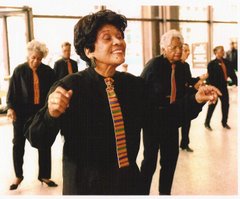
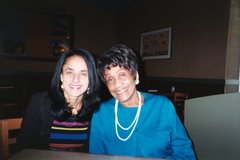

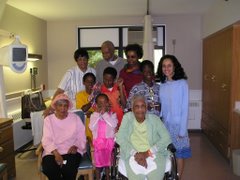

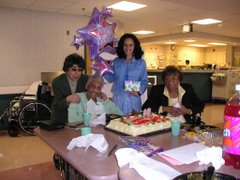
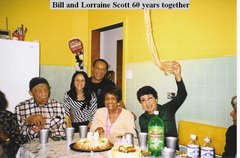



.jpg)
No comments:
Post a Comment